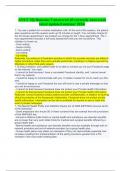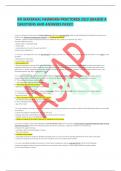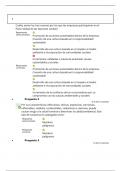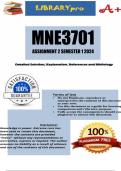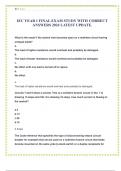Exam (elaborations)
ANCC IQ Domains 5 answered all correctly answered; latest updated summer 2024.
- Course
- Institution
ANCC IQ Domains 5 answered all correctly answered; latest updated summer 2024. 1. You see a patient for a routine medication visit. At the end of the session, the patient asks questions and the session ends up 50 minutes in length. You normally charge for the 30-minute appointment, but instead y...
[Show more]
